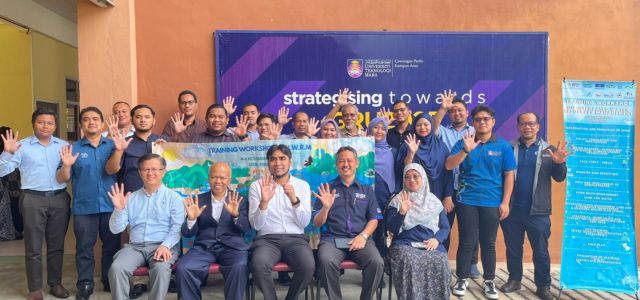In early 2023 the Malaysian Economic Planning Unit, under the Prime Minister's Department, released the Water Sector Transformation 2040 https://wst2040.my/ document (WST2040 (https://wst2040.my/)), as the strategic agenda for the water sector.
The WST2040 is a national agenda to transform the water sector into a dynamic & vibrant economic sector, so that the sector can contribute significantly to the national gross domestic product and provide good quality affordable water to the public as well as create new job opportunities and facilitating resilient development of Science, Technology, Innovation and Economy and Research, Development, Commercialisation and Innovation in the sector.
The Ministry of Energy Transition and Water Transformation (PETRA) Malaysia has been mandated to implement WST20240. As part of the WST2040 document, a special volume on Advocacy, Awareness, Capacity Building and Public Participatory Platforms (AACB) is also available.
The learning outcome being to help these stakeholders develop a working understanding of IWRM which can translate into accelerated implementation and improved water resources management in their various departments.
The intended outcome of the project is to institutionalise the introduction of the basic concept, principles and practice of integrated water resources management (IWRM) to civil servants, representing government stakeholders and the private sector.
Two training workshops were held, one in Universiti Malaysia Sabah (UMS) Sabah on 7-9 October 2024 and this second capacity-building workshop was held located in the UniversitiTeknologi MARA (UiTM) Arau, Perlis on 4-6 November 2024.
Participants came from the private and public sector as well as CBOs and NGOs, namely: Universiti Putra Malaysia, Hach Malaysia SdnBhd, Lembaga Urus Air Selangor (LUAS), Syarikat Air Perlis SdnBhd, Sungai Harmoni SdnBhd, JPS Daerah Kota Setar/Pendang/Yan, Grass Malaysia, MADA, and UiTM ARAU.
The modules covered:
- Introduction and Principles of IWRM
- Water Hazards – Floods and Droughts, Climate Change Projections
- Disaster Risk Reduction
- Case Study – Perlis: Water Demand and Its Future Outlook
- Role and Involvement of Administrator
- Strategies, monitoring and evaluation in Implementing IWRM – SDG 2030
- River Basin Management – Land and Water
- IFM and PISMA
- Policy, Legislation and Institutions
- Site Training: River quality bio-indicator assessment; and
- Role Play.
The Workshop was a two-way process which provided the trainers with an opportunity to impart knowledge to an enthusiastic group of Participants who were eager to learn and share. It has also provided an opportunity for the trainers to learn more about the issues and challenges in the state of Perlis.
